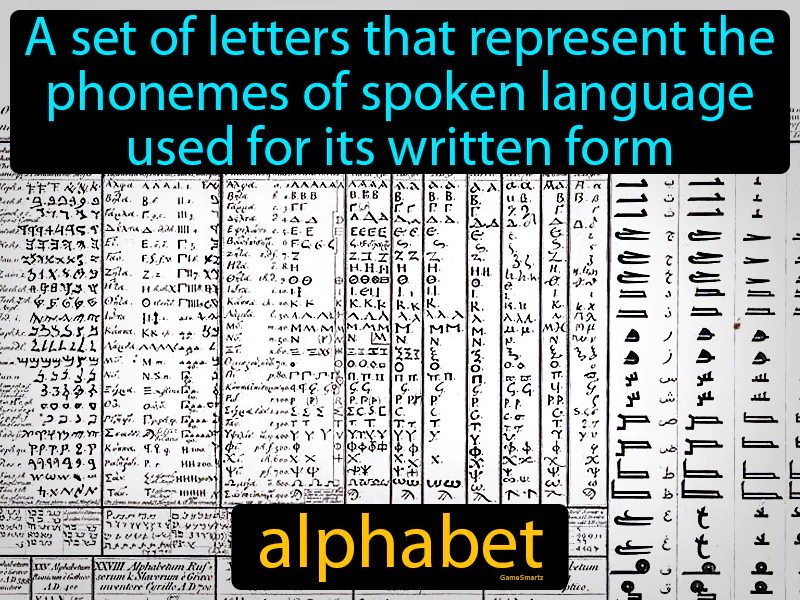Alphabet
Alphabet: Easy to understand
In the Ancient Middle East and Egypt between 3200 BC and 500 BC, the concept of the alphabet was revolutionary because it provided a simpler way to record language compared to complex systems like cuneiform and hieroglyphs. It responded to the need for easier communication and record-keeping in expanding civilizations, facilitating trade, governance, and cultural exchange. The Phoenicians developed one of the earliest alphabets, which influenced Greek and Latin scripts, creating a foundation for many modern alphabets. Today, alphabets are crucial for reading and writing, enabling education, communication, and the sharing of ideas. For example, learning the alphabet is one of the first steps in school, allowing children to read books, write stories, and connect with people globally through written communication.

Practice Version

Alphabet: A set of letters that represent the phonemes of spoken language used for its written form. Alphabet. The alphabet is a system of symbols used by ancient civilizations like the Phoenicians to represent sounds in their language for writing and communication.